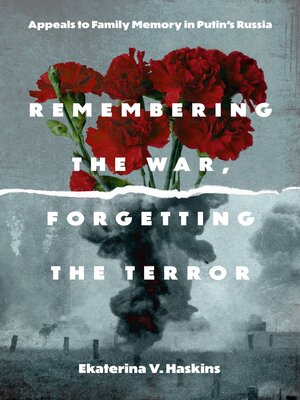Remembering the War, Forgetting the Terror
ebook ∣ Appeals to Family Memory in Putin's Russia · Rhetoric and Democratic Deliberation
By Ekaterina V. Haskins

Sign up to save your library
With an OverDrive account, you can save your favorite libraries for at-a-glance information about availability. Find out more about OverDrive accounts.
Find this title in Libby, the library reading app by OverDrive.



Search for a digital library with this title
Title found at these libraries:
| Library Name | Distance |
|---|---|
| Loading... |
Russian state propaganda has framed the invasion of Ukraine as a liberation mission by invoking the Soviet-era myth of the Great Patriotic War (1941–45), in which the Soviet people, led by Russia, saved the world from the greatest evil of the twentieth century. At the same time, the Russian government has banned civil society institutions and initiatives that remind the country of the legacy of Soviet political violence.
Remembering the War, Forgetting the Terror explores the appeal of the cult of the Great Patriotic War and the waning public interest in Soviet political terror as intertwined trends. Ekaterina V. Haskins argues that these developments are driven not only by the weaponization of the official memory of World War II but also by familial pieties and deep-seated habits of memory. Haskins uncovers how widely shared practices of remembrance have taken root and flourished through recurring exposure to war films, urban environments, popular commemorative rituals, and digital archives. Combining scholarship and personal biography, Haskins illuminates why, despite the staggering toll of World War II and internal political violence on Soviet families, most Russian citizens continue to proudly embrace their family's participation in the war effort and avoid discussion of domestic political persecution.
Elegantly written and convincingly argued, this book is an important intervention into contemporary rhetoric and memory studies that will also appeal to broader audiences interested in Russia, Eastern Europe, and the war in Ukraine.







